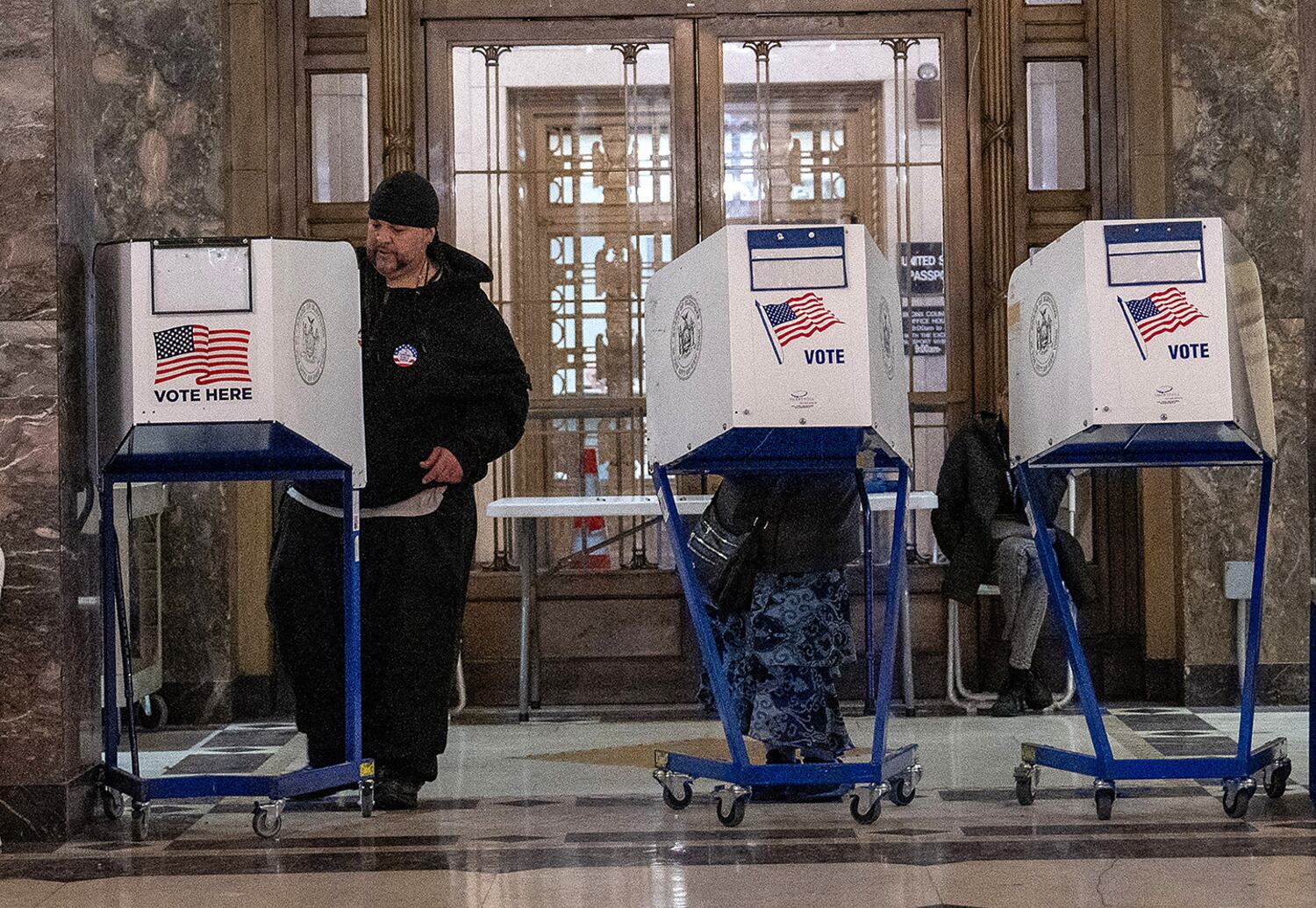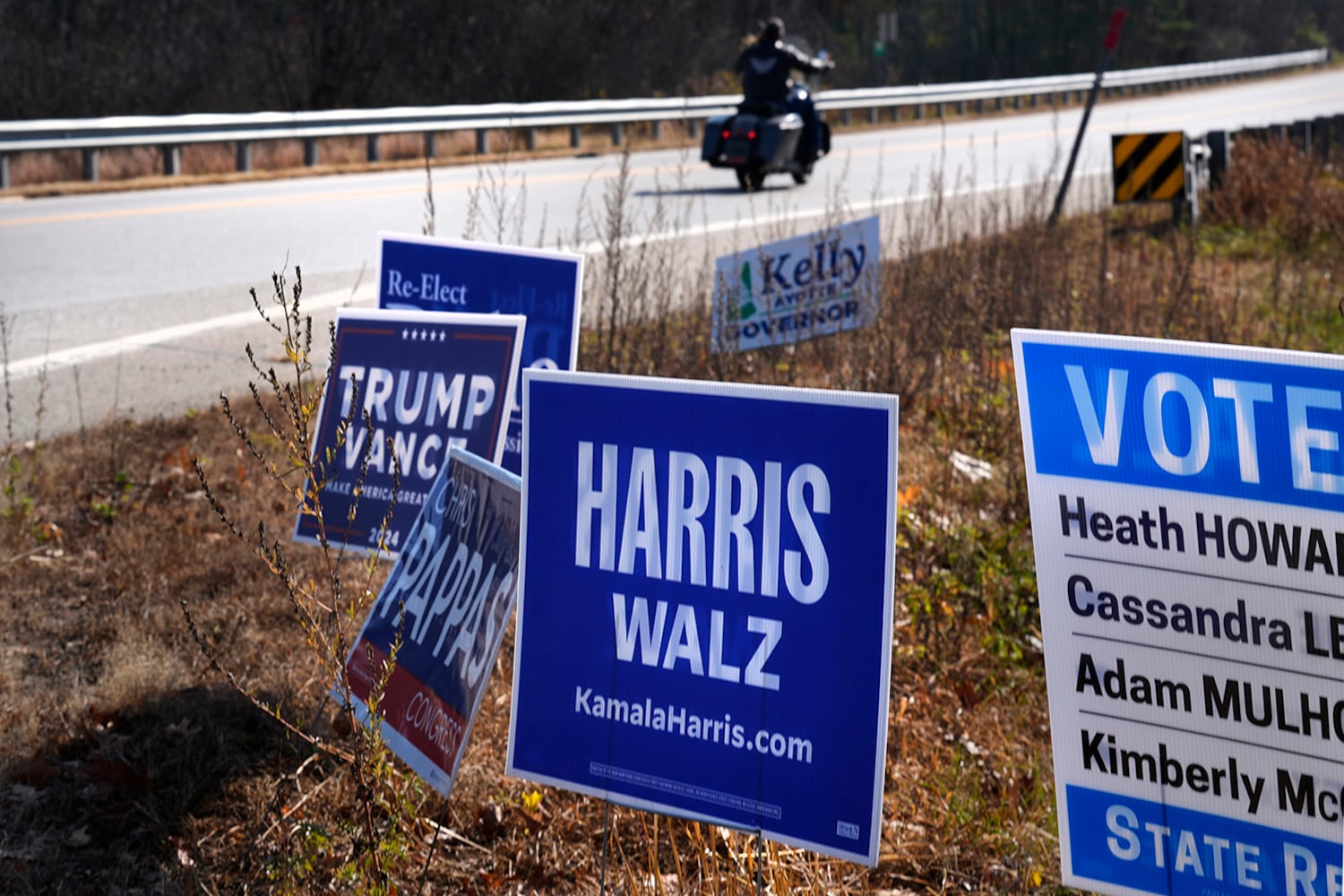As China watches the countdown to the U.S. presidential election results, state media has been hammering home the point that American democracy is messy, violent and encourages extreme behaviors on both sides, while ordinary people seem to support Democratic Vice President Kamala Harris and former President Donald Trump in roughly equal measure, commentators told Radio Free Asia.
“In the past three months, Trump has survived multiple assassination attempts,” the state-run China Daily newspaper said in an Oct. 29 commentary. “Harris’s campaign office in Arizona was also shot at and vandalized.”
“Political violence is on the rise as polarization and public opinion divisions intensify ahead of the election,” the paper said, adding that there are widespread fears of political violence that could follow even when results are known.
Other media reports focused on name-calling in the campaign, including the description of Puerto Rico as a “floating island of garbage” at a Trump campaign event, and Harris’ taunting of the former president for not being able to “finish a thought.”

While Chinese President Xi Jinping expressed brief “condolences” following the shooting of Trump at a campaign rally in July, officials have largely refrained from commenting in public on the election campaign.
Yet many in China are still watching closely, with similar levels of support for each party’s candidate, commentators told RFA Mandarin in recent interviews.
“It’s actually really interesting — [some] people in China hope that the U.S. will elect a president who doesn’t favor the Chinese Communist Party,” a Guangdong resident who gave only the surname Zhou for fear of reprisals told RFA Mandarin in a recent interview.
“But there is roughly equal popular support for both candidates in China,” he said.
RELATED STORIES
EXPLAINED: How would Harris and Trump differ on Asia?
Days before US election, North Korea stages record long missile test
US ELECTIONS 2024: Trump, Harris trade barbs over China in presidential debate
He said it’s unsurprising that the Chinese media try to play up the “instability” angle when covering the rough and tumble of a presidential campaign trail, given the Chinese Communist Party’s focus on stability as a top priority at home.
Yuan Dong, a scholar from the central province of Hunan, said there is a dedicated group of social media users in China who have followed the election step-by-step since campaigning started.
“People are paying much more attention this time around compared with four years ago,” Yuan told RFA Mandarin in a recent interview. “Chinese social media users aren’t allowed to talk about domestic current affairs, and the U.S. election will have an impact on the international situation, particularly the Ukraine war.”
“A lot of the people paying the most attention are dissidents and former political prisoners.”
While many Chinese believe that the outcome of the Nov. 5 poll will have a crucial impact on China, very few are publicly supporting either candidate, taking their cue from official silence on the topic, Yuan said.
“Most people are getting their information from blogs and WeChat friend circles,” he said. “Very few are getting it from traditional media like newspapers, TV or radio.”

Overseas Chinese have less to worry about when it comes to taking sides, according to former Anhui prosecutor Shen Liangqing.
“[Some are] relatively friendly to the United States and hope the party they like will get elected,” Shen said. “The arguments among the Harris and Trump supporters are more intense.”
Another group of overseas Chinese is fairly hostile to the U.S., and is watching the process as if it were a joke, relishing any expression of “chaotic” behavior, he said.
“There are fierce arguments between Harris and Trump supporters, and people are even falling out and blocking each other,” Shen said. “There’s another attitude too, which is that it doesn’t matter who comes to power, because the U.S. is a democratic country.”
A commentator who gave only the surname Zhou for fear of reprisals said some people in China have expressed envy at the right to vote for the next president in a country where President Xi has amended the constitution to abolish presidential term limits, paving the way for indefinite rule.
“A lot of people are paying attention to the U.S. election, because actually we envy it,” Zhou said. “The so-called ‘full process democracy’ we have here is just a word. We don’t have democracy here at all.”
“Even our village committee elections are controlled by [the ruling party],” he said. “We would love to have one person, one vote one day, so we could elect our own national leaders.”
A Protestant pastor from the southwestern province of Yunnan who gave only the surname Cao for fear of reprisals said his church members are watching closely, and many wish that the Chinese people also had the right to vote.
“But what is the point of the Christians in our church having any opinions? There’s nothing they can do about any of it,” he said. “Opinions are a luxury.”
Zhejiang-based scholar Zhao Zhi said the complexity of the Sino-US relationship has been the main focus in the official media.
“While the general public are watching the election as spectators, the official media is emphasizing the potential risks of dividing U.S. society,” Zhao said, adding that Beijing is also keen to find out which of the candidates’ China policies will be implemented.
In an economic commentary on Oct. 29, the China Daily said U.S. China trade and economic policy is unlikely to be hugely affected, regardless of whether Harris or Trump forms the next administration.
“No matter which party controls the House or/and Senate, there is little chance this ‘small yard, castellated wall’ approach will change any time soon,” the paper said in a separate commentary on recent Treasury rules curbing U.S. investments in high-end computer chips, AI and quantum computing.
“Containing Chinese scientific and technological progress has become a bipartisan consensus in US domestic politics, and a key pillar of US geopolitical strategy,” the paper said.
“Beijing has been cast as the foremost threat to US national security. And national security has been a handy rallying cry for US politicians to concentrate support both at home and abroad,” it said.
Translated with additional reporting by Luisetta Mudie. Edited by Eugene Whong.
This content originally appeared on Radio Free Asia and was authored by Qian Lang for RFA Mandarin.
This post was originally published on Radio Free.